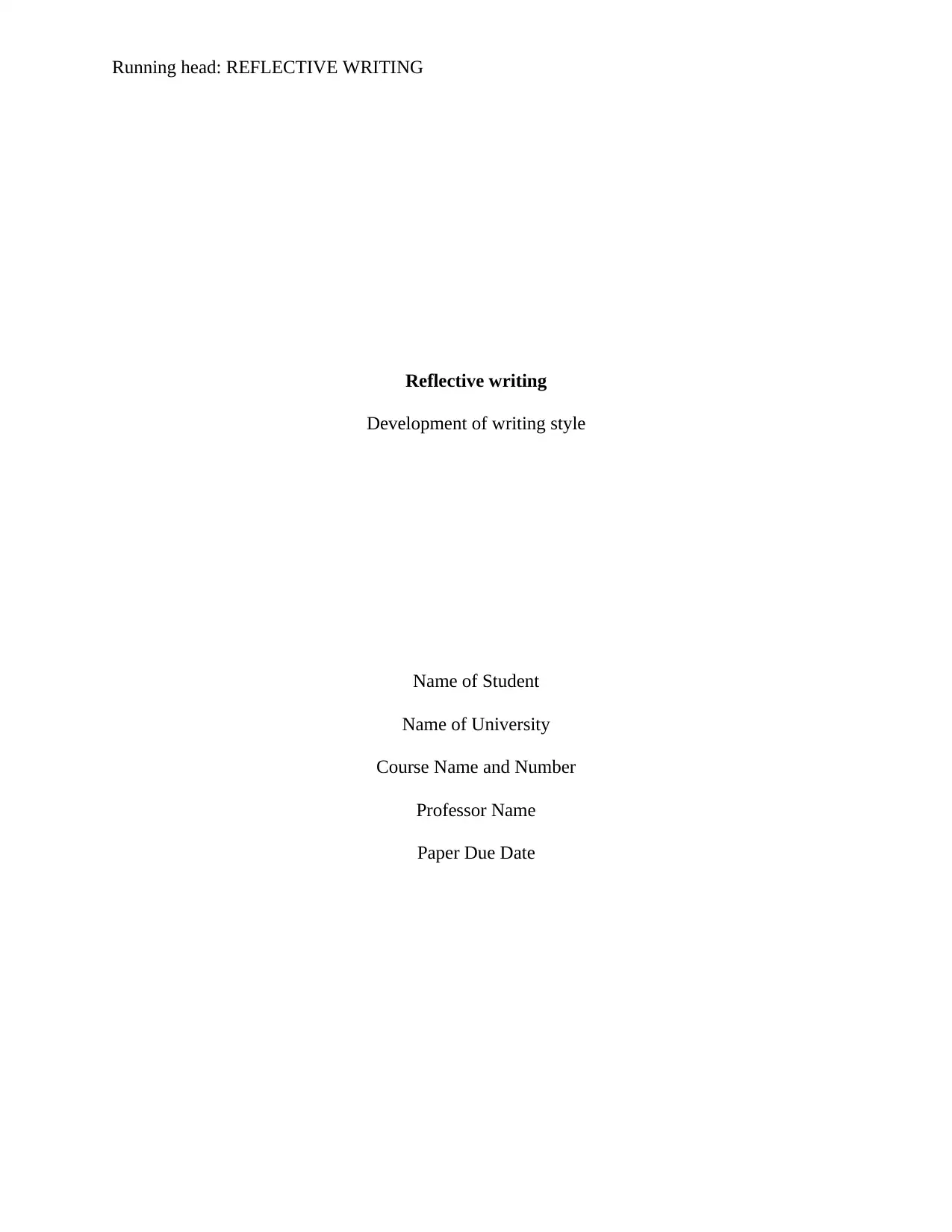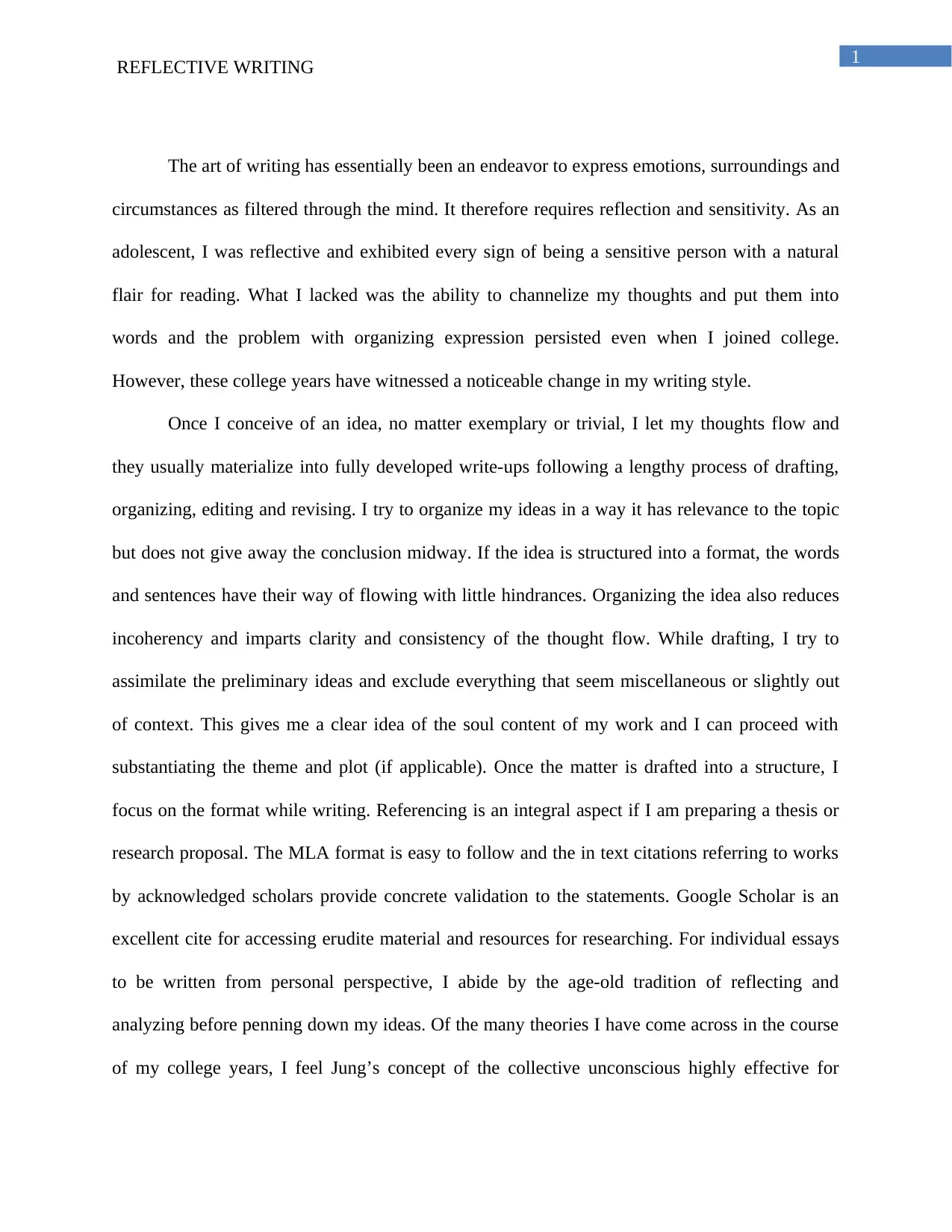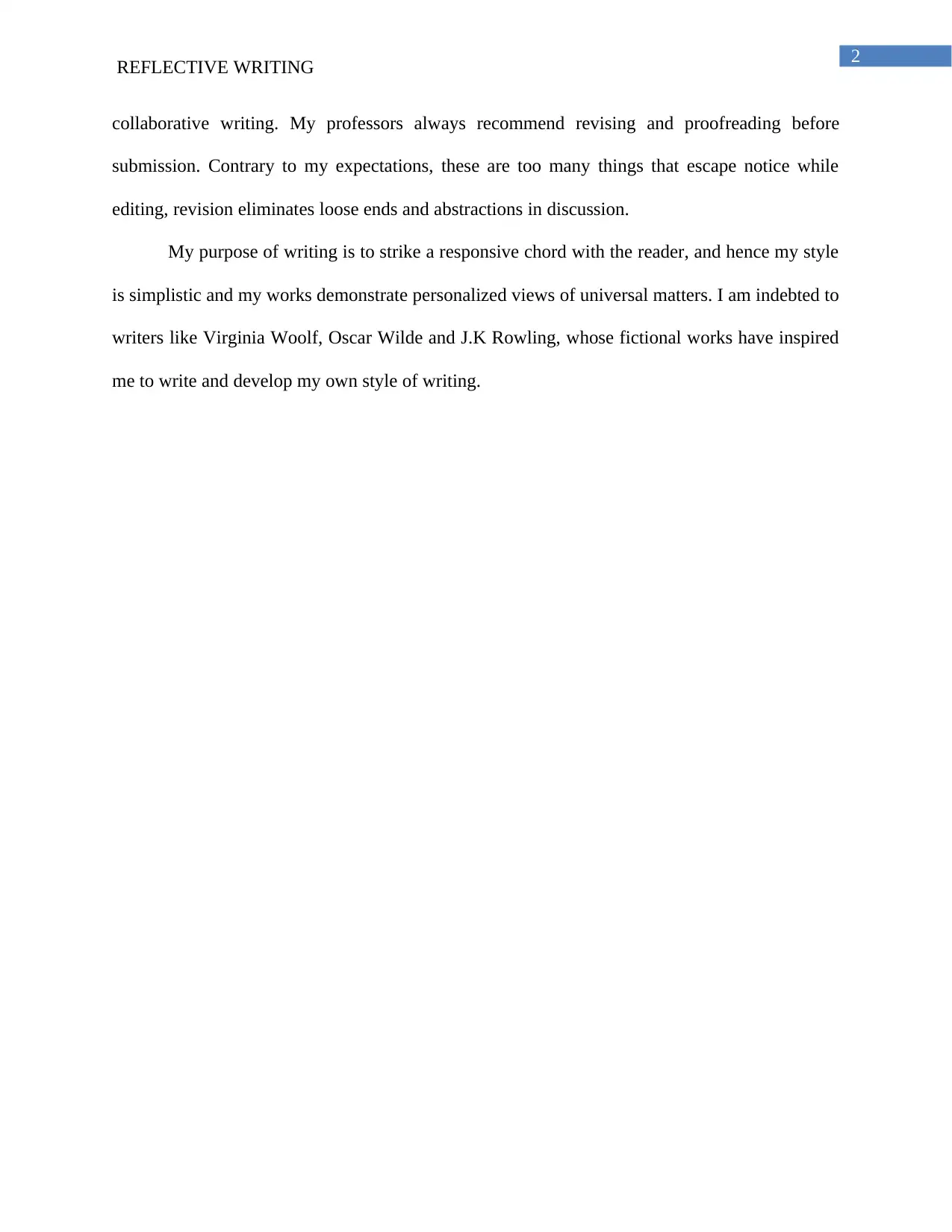Reflective Writing: Developing a Unique and Effective Writing Style
VerifiedAdded on 2023/06/10
|3
|504
|221
Essay
AI Summary
This essay is a reflective account of the author's journey in developing their writing style from adolescence to college. It highlights the initial struggles with organizing thoughts and expressing them coherently, followed by the gradual improvement through drafting, organizing, editing, and revising. The author emphasizes the importance of structuring ideas, incorporating relevant content, and using referencing formats like MLA to validate statements. The essay also touches upon the influence of writers like Virginia Woolf and J.K. Rowling, and Jung's concept of the collective unconscious in collaborative writing. The author's purpose of writing is to connect with the reader through a simplistic style and personalized views on universal matters, achieved through reflection, analysis, and continuous revision.
1 out of 3










![[object Object]](/_next/static/media/star-bottom.7253800d.svg)